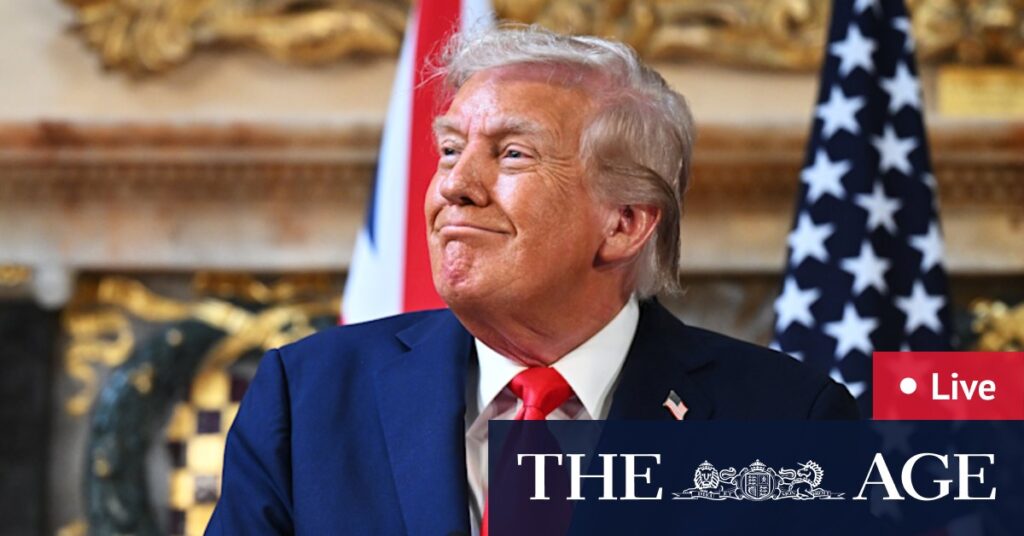
The Australian government has announced a bold new climate target, aiming to cut emissions by 62 to 70 percent of 2005 levels by 2035. This ambitious goal was unveiled by Climate Change Minister Chris Bowen, who has faced both praise and criticism from various quarters. Meanwhile, the Australian sharemarket has seen a positive uptick, buoyed by technology shares following a significant deal between Nvidia and Intel.
The announcement comes as Prime Minister Anthony Albanese grapples with questions about the impact of renewable energy on consumer power bills. At a recent press conference, Albanese stopped short of guaranteeing a reduction in energy costs, despite previous promises from his government during the 2022 election campaign.
Market Reactions and Economic Implications
The Australian Securities Exchange (ASX) experienced a rise, with the S&P/ASX 200 climbing 53.9 points or 0.6 percent to 8799.1. This increase was largely driven by the technology and healthcare sectors, while telecommunications shares lagged. Notably, Commonwealth Bank, the largest stock on the bourse, rose by 0.8 percent.
Technology shares mirrored gains seen on the Nasdaq, with Life360 and Xero showing notable increases. However, WiseTech saw a slight decline in early afternoon trading. These movements reflect broader trends in global markets, influenced by the recent Nvidia-Intel deal, which has set new records on Wall Street.
Political Dynamics and Climate Commitments
Prime Minister Albanese’s refusal to guarantee lower power bills has sparked debate, particularly given the government’s previous pledge of a $275 reduction in energy costs. Albanese emphasized the role of renewables as the cheapest form of new energy, citing modeling from the Energy Market Operator. However, he stopped short of making a definitive promise.
The Climate Change Authority has indicated that power bills could fall by $1000 under the new emissions reduction plan. Yet, Minister Bowen clarified that this is not a political promise but rather a projection based on expert modeling.
Opposition Stance and Internal Challenges
Opposition Leader Sussan Ley’s comments on climate targets have added to the political discourse. Ley initially stated that the Coalition does not support setting climate targets from either opposition or government, a remark she later clarified to emphasize the importance of targets when in government.
Prime Minister Albanese seized on Ley’s misstep, criticizing the Liberal Party for internal conflicts and lack of clarity on climate policy. He argued that the opposition’s inconsistency reflects broader issues within the party.
Local and International Developments
In local news, Australia Post has accelerated its plans to resume parcel deliveries to the United States, following recent changes in US tariff policies. This move is expected to alleviate disruptions faced by businesses reliant on international shipping.
Meanwhile, in Melbourne, climate protesters from Extinction Rebellion disrupted traffic to draw attention to Indigenous struggles and environmental issues. Their demonstration on the Punt Road bridge highlighted ongoing tensions between activism and public inconvenience.
Global Context and Future Outlook
Internationally, former US President Donald Trump has made headlines by threatening TV networks over criticism, raising concerns about media freedom. Additionally, Trump’s plans to assert control over a key air base in Afghanistan underscore geopolitical tensions with China.
As Australia navigates its climate commitments, economic shifts, and political dynamics, the coming months will be crucial in determining the effectiveness and public reception of its policies. The government’s ability to balance economic growth with environmental responsibility will be closely watched by both domestic and international observers.
Looking ahead, the impact of these developments on Australia’s political landscape and global standing remains to be seen. With significant challenges and opportunities on the horizon, the nation’s approach to climate policy and economic strategy will be pivotal in shaping its future trajectory.






